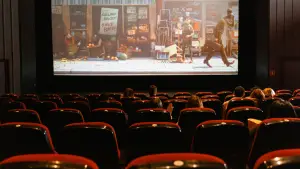The beginning
As a student of sociology, I am particularly fond of the research methods paper. It is the right mix of theoretical and empirical material. Therefore, when I got a chance to teach at teaching research methods as a faculty to masters students in March 2019, I was pretty excited.
Research methods was not only one of my favorite sub-disciplines of sociology but also something that I see as fundamental to the discipline. It is a part of our daily lives. Therefore, one of the goals that I had set out for myself was to teach my students to inculcate this idea in their lives too. The sociological perspective needs to be imagined first to be built.
‘Re-looking’
One of the ways I thought this could be done is by trying to ‘re-look and re-understand’ familiar things. Apart from lectures, tests and assignments, what really helps in building a research aptitude is doing it first-hand. Thus, although there was a time constraint, I emphasized a research project as a task or assignment that each student had to undertake.
An independent research project is not really possible at a masters level, that too when one only has a month to get it done. Therefore, a class of fifty students were divided into groups of three, four or five. It was the first step towards learning how to do research—teamwork. As these students would finish their degrees, some of them would venture into jobs which involve researching teams as the primary skill. Therefore, it is vital to learn to be a part of a group in carrying out any research.
Secondly, I had asked my students to choose topics that were familiar. Studying and researching one’s own community has been widely debated in sociology with no one clear position. While some see it as an advantage, others see it as challenging. There is also the question of objectivity—whether one can be bias-free when they are researching people and things that are already well-acquainted. As expected, many of the students told me that there was nothing “new” in their own lives that they should “research.”
“We already know this” was the most popular response I had received. I had anticipated it and was hence prepared. I told them that sociological research is not always about finding new things. It is about questioning the taken for granted or “common sense” knowledge (Mills 1959). One has to “see through” existing structures to unearth hidden meanings and causes (Berger 1963).
After that, some of the topics that they choose were quite interesting. A group of three students from Assam wanted to understand the reasons behind the existence of racism against people from the north-east in Delhi. Another group of four students (all women) wanted to explore the reasons behind the difference in rules that exist for male and female students in the university hostel.
Biography and History
As I sat down with each group to finalize their topic and guide them, I realized the role that their biographies had played in framing their research interests. Their research questions had emerged from their personal experiences in Delhi.
India is a geographically diverse country, and Assam is one of the seven north-eastern states of India. There is a massive inflow of people, especially students from the north-east including Assam, every year to Delhi. Some of the best undergraduate colleges and institutions are located in India’s capital city, which explains this influx. However, there have been several instances of racist attacks on people from the north-east in metro cities, including Delhi.
Therefore, the group of three students from Assam wanted to explore the reasons behind this racism that was personal. Similarly, for the group of four women, who lived in hostels, the question of understanding why men and women had different rules in their hostels was essential. For them, it was important to make sense of their biographies—to grasp the relationship between history and biography in society (Mills 1959).
Studying the ‘self’
When we were discussing the findings, most of them admitted that they ‘re-looked’ at their familiar setting with a different lens. For most of them, studying the ‘self’ became a gateway to understanding themselves better.
One student who was part of a group of three students that looked at the university as a site of resistance to the state, told me, “I never thought that the university was such an interesting space to explore. I started noticing minute things that otherwise, I would ignore.’”
After all, research is the ability to study our own lives as much as it is to study others. For many others, researching on familiar things meant that it was time to be self-critical and reflexive as well.
It was also interesting for me to observe and understand how they framed their interview schedules, as many of the people they interviewed were acquaintances and/or friends. Familiarity with the field meant that they had to reorient themselves to gather information. For instance, one team had a particular concern that in response to their questions, many people would say, “you already know this, why are you asking.” They felt that because their respondents knew them from before, they were not taking it “seriously.”
Conclusion
How does one then deal with it then? Is it a non-response? These are challenges that come up when one is studying the ‘self’ and familiar settings with no fixed answers. Thus, this particular assignment with my students helped all of us understand that the pursuit of knowledge is never complete. Even a study of familiar contexts and locations can throw new light on them. Therefore, it is important to keep researching.
References:
- Berger, Peter. (1963). Invitation to Sociology: A Humanistic Perspective. Doubleday.
- Mills, C. W. (1959). The Sociological Imagination. New York: Oxford University Press.
*I would like to thank my students for helping me in writing this piece as it is my interactions with them that has shaped it.








